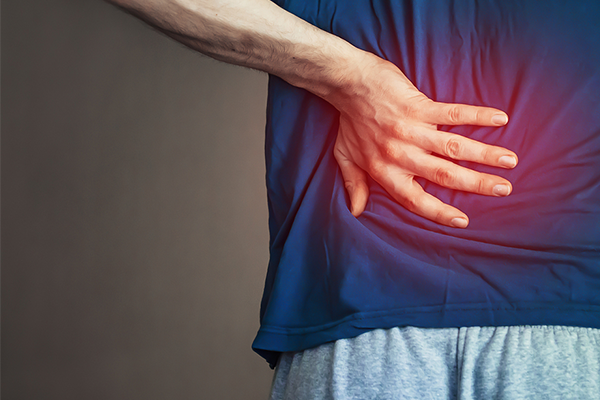What’s Causing Your Hip and Back Pain?
You’ve been dealing with a persistent pain in your lower back. But is it actually your back — or could it be your hips?
You might be surprised by how often hip issues masquerade as back pain. Anatomically, it makes sense though. After all, that song you probably sang as a child says your backbone is connected to your hip bone.
What Hip and Back Pain Feel Like
It’s likely that you’ve experienced back pain at some point. In fact, research indicates that up to 80% of Americans will develop back pain at some point in their lives.
While back pain is common, what it feels like varies from person to person. How you’ll experience back pain will depend on where exactly the pain emanates from and its cause.
If your lower back pain is related to your spine, you will likely experience pain you will feel only in your back, butt and hips. This pain may shoot down your legs at times and worsens when you sit or bend. When you’re standing or walking, it probably improves.
On the other hand, if the pain you’re experiencing is related to your hips, you may also feel pain in your groin. Your discomfort may come and go, worsening when you’re standing, walking or active. When you rest, it will improve.
The Causes of Hip and Back Pain
The first step to determining the underlying cause of your pain is to identify whether it’s coming from the back or the hips. From there, your health care provider will ask whether your pain is acute, which means it comes on suddenly, or chronic, which means it’s been around a while.
There are many potential causes of hip and back pain. Injuries can occur due to an accident or even result from basic bodily movements. You can also develop medical conditions such as arthritis, spinal stenosis or osteoporosis. Even pregnancy can lead to hip and back pain.
What to Do About Hip and Back Pain
Because the parts of our anatomy are so intricately connected, it can be nearly impossible to self-diagnose. In order to get a firm diagnosis of what’s causing your pain and how to best treat it, you’ll need to visit a health care provider.
However, you can take some steps to find relief at home. Try applying heat or cold to the affected area in short intervals, and use an over-the-counter pain reliever or anti-inflammatory medication as directed.
While it may sound weird, light exercise may also help, particularly if your pain is actually related to your back. Try incorporating small amounts of movement into your day to see if it helps — but always stop if you experience pain.





